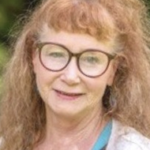Rasha was 10 years old when she wrote her will. In simple words, she asked that her belongings be given to those in need if she didn’t survive. A child, too young to dream of death, yet old enough to know it was coming. She was killed soon after.
Her words remain, a haunting testament to a stolen childhood. But she was not the only one. Across Gaza, children have written goodbyes instead of school essays, made burial requests instead of birthday wishes. Their futures were taken before they had the chance to grow into them.
Now, as a ceasefire takes hold, we must ask: will it last long enough for them to reclaim their childhoods?
A childhood shaped by war
For many, war is something found in history books. For Gaza’s children, it has been the backdrop of their lives.
They have learned to recognise the hum of drones, the whistle of incoming missiles, the silence before an explosion. Their playgrounds are rubble; their bedtime stories interrupted by air raid sirens.
Since the genocide escalated, thousands of children have been killed or maimed. Others have survived, but with wounds that are harder to see, nightmares, trauma and grief no child should bear.
“My son doesn’t ask for toys anymore,” says Leila, a mother of three. “He asks if we will be bombed tonight.”
Now, there is a fragile pause in the violence. But will it hold long enough for children to dream again?
A future beyond the rubble
Even in war, there are supposed to be safe spaces, hospitals, schools, homes. But in Gaza, nowhere was safe. Families fled from one destroyed neighbourhood to another, searching for shelter that did not exist.
Now, they try to rebuild. But how does one rebuild when everything is gone? The borders remain closed. The sea is a dead end. Humanitarian aid trickles in, but will it be enough to sustain hope?
Before the war, Gaza was home to poets, dreamers and children who wanted to be doctors, teachers, footballers. Now, many of their ambitions lie buried beneath the ruins.
Rami, 12, wanted to be a pilot. “To fly above Gaza and see the sea,” he once said. He was killed with his entire family when their home was bombed.
Aya, 8, loved to paint. If she has survived, she may now sit in a refugee shelter, sketching memories of a home that no longer exists.
These children had futures. They had dreams. A ceasefire must mean more than a pause in bombing, it must be a commitment to protecting what remains of their childhoods.
Who will remember them?
War destroys, but memory resists. The stories of Gaza’s children must not be reduced to statistics in a report. Their voices, their dreams, their lives must be remembered.
Rasha’s will should not be just a heartbreaking footnote in history, it should be a call to action. For an end to impunity. For the protection of children. For a peace that does not expire when the world looks away.
A ceasefire has begun. Now, the world must ensure it is not just another pause before more children are forced to write their wills.
Read more on the ongoing crisis: ABC News

Meg Schwarz
Meg Schwarz holds a Postgraduate Diploma in Counselling and Psychotherapy and brings over 35 years of experience championing social justice, advocacy and consumer engagement. Based in South Australia, Meg has dedicated her career to working alongside diverse communities, including refugees, people with disabilities and individuals with complex trauma backgrounds.With a strong passion for equality and human rights, Meg specialises in fostering meaningful communication, empowering voices through advocacy and creating inclusive spaces for dialogue. Her skills in stakeholder engagement, strategic communication and community development have earned her recognition as a trusted and compassionate leader in her field.
